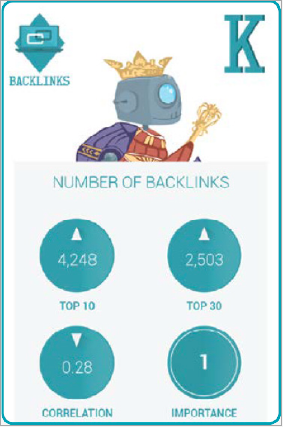SEO Myths To Leave Behind In The New Year

To say SEO for Marketers has "changed a lot" would be the understatement of the decade. Google comes out with updates constantly, so you really have to be on your game, waiting and watching. Especially, the major Penguin update in September 2016 which made the rewarding of high quality websites in search results a part of its core algorithm. We also saw an increase in featured snippets on search engine results pages (SERPs), Google’s Accelerated Mobile Pages (AMP) project, the removal of AdWords on the righthand side of SERPs for desktop searches, and the inclusion of a maximum of four ads on top of organic results.
But does that mean an SEO specialist’s job is just to pump out high-quality, keyword-optimized content? Far from it. In fact, SEO has changed so much in the past several years that many marketers aren’t sure what’s outdated, what’s important, what will actually move the needle, and what’s simply wasted effort. This guide is going to point out all of the most common myths and assumptions about how SEO works and debunk them for you, so you’re not wasting a single moment on things that simply don’t matter for SEO. Let’s get started.
SEO Myth #1: "I Must Submit My Site To Google"
The idea that you need to submit your website to Google in order to appear in search results (or rank) is nonsense. While a brand new site can submit its URL to Google directly,
a search engine like Google can still find your site without you submitting it. Even if you do submit your site to Google, a submission does not guarantee anything. Crawlers will find your site and index it in due time, so don’t worry about this idea of needing to “tell” Google about your site.
SEO Myth #2: "More Links Are Better Than More Content"

In the past, building as many links as possible without analyzing the linking domain was how SEO typically worked. By doing this, your website was sure to rank higher. Building links is still a very important part of ranking factors. It is among the top five most important ranking factors, according to a correlational study on ranking factors by Search metrics, which is a company that provides SEO analytics and reporting tools for large enterprises. But you must build links in a much different manner than you used to.
But linking is not a numbers game anymore. Far from it, actually. You should focus on having relevant and diverse sources that link to relevant pages. When you invest in content, that content can be used for webpages, blog posts, lead generation offers, and guest posts on other sites – all content type that will bring more links with them over time.
SEO Myth #3: "Keywords Need To Be An Exact Match"
Keywords do not need to be repeated verbatim throughout a piece of content. In a headline, in particular, you want to use a keyword (or keywords) in a way that makes the most sense to your audience. The goal should be to write a stellar headline (somewhere between 4-9 words) that clearly explains what the piece of content is about. Nothing is more of a buzzkill than having a headline that’s awkwardly framed around one keyword phrase; or, worse, one that forcibly repeats a keyword phrase. This rule applies not only to headlines but also to the content on the page. The goal should be to inform the reader, not to inform the search engines.
Want more SEO tips? Get a free SEO Myths eBook below!




